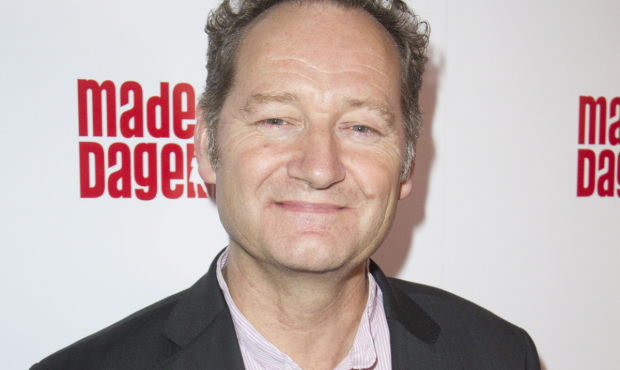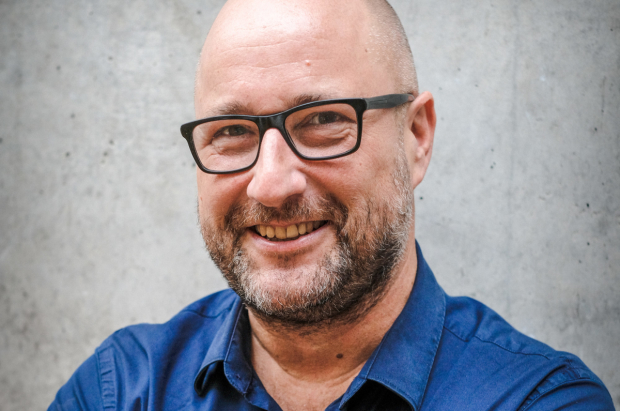Richard Bean: 'Hull feels like a city the rest of the nation doesn't give a damn about'

© Dan Wooller for WhatsOnStage
Growing up in Hull was heavenly. I was born in an area that was in the city but there was still farming around our house so in the summer we’d play in haystacks. What the world has told the rest of the world about Hull is untrue – for many people it’s a fabulous place.
It’s a city that feels as if the rest of the nation couldn’t give a damn about it. The UK uses it and abuses it. In the second world war, Hull was the most bombed city in the UK outside of London, but nobody knows that because we were never cited in reports. It was just: "a north east port was bombed again last night", for people in Hull it was like: "for God’s sake, give us a fucking name, name us, we’ve been bombed again!" There was an extraordinary kind of anger around that.
In 2003, the book "Crap Towns" came out and in the first edition, we ‘won’
I was a teenager in the '70s – one of the the toughest times for Hull as a city. In 1975 Iceland and Norway extended their fishing waters to 200 miles and we joined the common market, giving the Spanish access to British fishing waters. The combination of these three things just shattered west Hull, which was entirely based on deep sea fishing. They took a huge city, and closed down half the industry over night, literally over night – the fishing fleet never left the harbor again, they had nowhere to go and the city was devastated. The population went down by about 50,000.
In 2003, the book "Crap Towns" came out and in the first edition, we ‘won’. Of course, we wrote our own jokes about that, we’d say we were the crappest of the lot. It’s the same thing that Millwall football team has, "nobody likes us but we don’t care."
We’ve been coming back for a long time now, there’s been a lot of regeneration which has worked, and there’s new industry. We’ve always had a big pharmaceutical industry – which nobody knows much about – but almost every plaster that you stick on will be made in east Hull. Also, because of our maritime past, we’re very good at making stuff like caravans and wind turbines – which is the new hope for Hull, Siemens are making these huge turbines, you’d be blown away if you saw one.
And now we have Hull UK City of Culture, and we’re absolutely thrilled of course. The thing about Hull and culture is, it’s not an alien thing for us. We’ve always been a poet’s town. I went to the same school as Andrew Marvell, of course Philip Larkin lived in Hull, and Douglas Dunn. There’s a kind of quirkiness and uniqueness to the culture here.
Hull has so many stories, once you find your feet as a writer, you don’t really have to go too far to find a good one
One of the strange statistics about Hull is that, of the universities in Great Britain, more students that go to Hull University stay on and live the rest of their lives in the city than at any other university. It might be because you can buy a house for £40,000 – Hull is not an expensive place to live. You might think that’s a rather prosaic point to make, but the reason I could become a stand-up comedian was that I got to live in a squat in London. I was only getting paid 20 quid a night and in the '90s that didn’t go very far. As an artist you can live in Hull relatively inexpensively, create your own work and put it on and develop and grow. It’s like having a fabulous grant from somewhere, even though you've got no grant at all, it’s just accommodation is incredibly cheap.
I’ve written about 20 stories and six or seven are set in Hull. Hull has so many stories, so once you find your feet as a writer, you don’t really have to go too far to find a good story. Whereas Mark Ravenhill, brilliant writer, a pioneer on certain subjects, but he hasn’t written about Haywards Heath has he? Because Haywards Heath is Haywards Heath. They don’t have many people go to sea and die, they didn’t get bombed to shit in the war, they didn’t have mass unemployment and heroin issues like we had in the '70s – you’re not going to write about Haywards Heath are you?
In some ways, coming from Hull, is a blessing and a curse. I might have been a bigger and better political playwright if I hadn’t been born in Hull but the Hull stories are very human and personal, and I think good dramas are often the political found in the personal.
Click here for more of our Regional Theatre Focus content
Richard Bean's The Hypocrite runs at the Swan Theatre, Stratford-upon-Avon from 31 March to 29 April.











